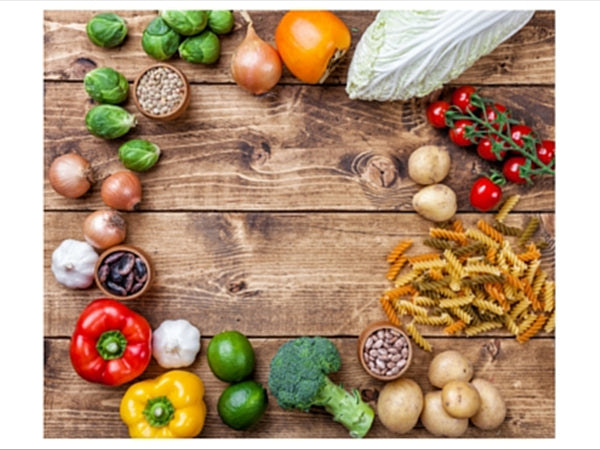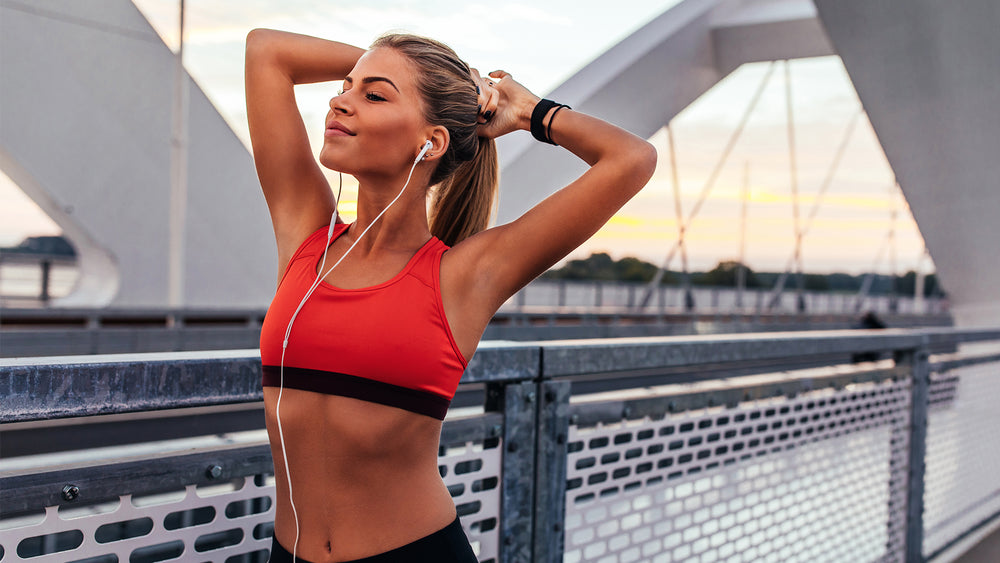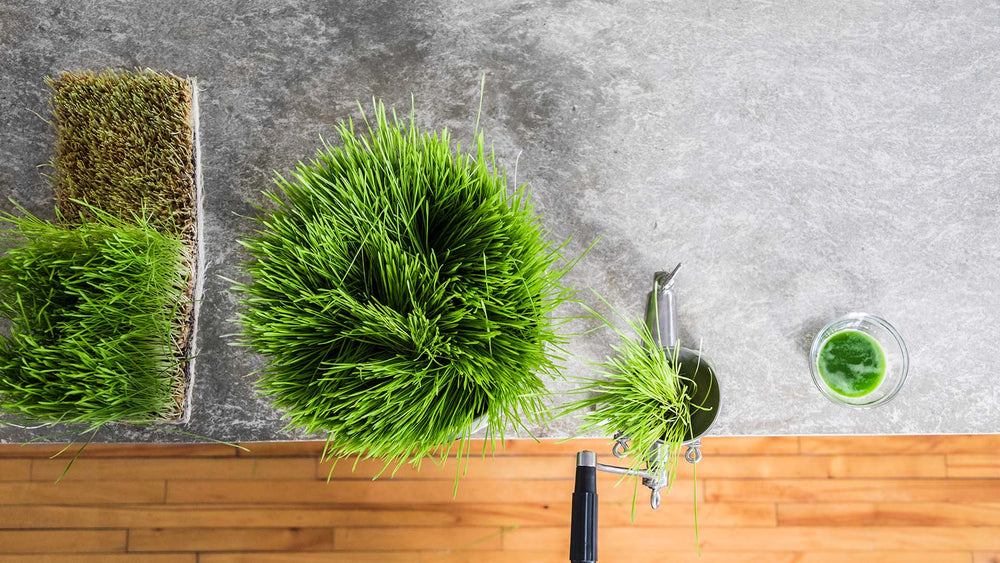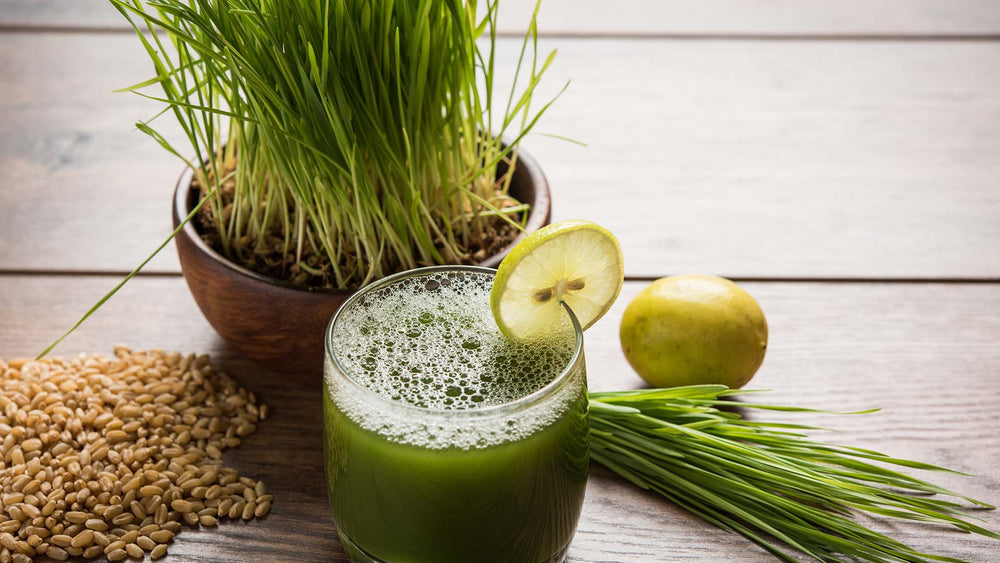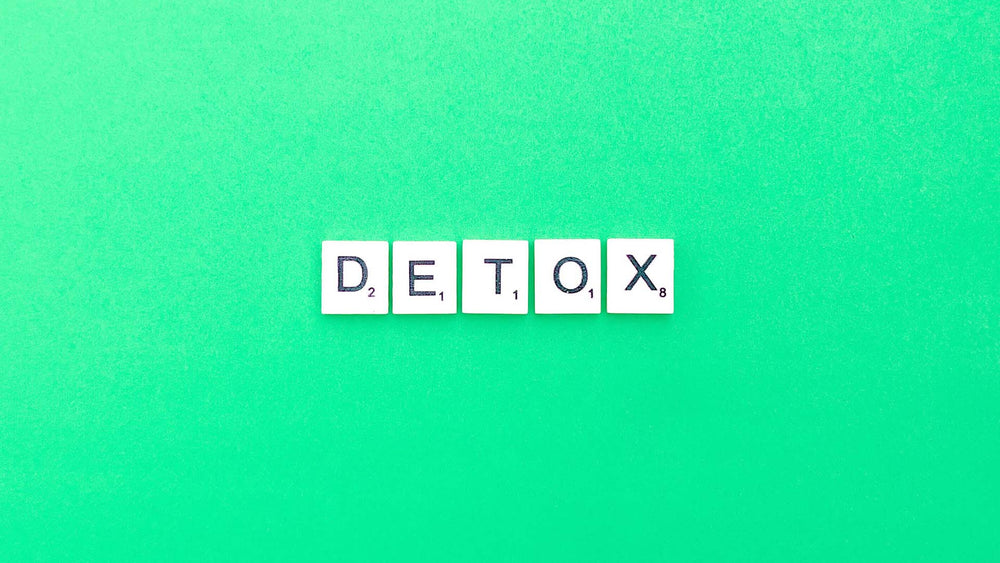An estimated 1,685,210 people will be diagnosed with cancer in the United States in 2016, according to the National Cancer Institute. One in three people will suffer from cancer at some point in their lives, but research shows there are many ways to reduce your cancer risk. Living a healthier lifestyle, exercising, losing weight and eating nutritious foods are just a few of the ways you can prevent some of the most common cancers.

Don’t Smoke or Chew Tobacco
Cigarette smoking is the leading cause of lung cancer, with 87% of deaths from this disease due to smoking. Smoking cigarettes, cigars or chewing tobacco can also lead to heart disease, strokes, diabetes, asthma and other life-threatening conditions.
Smoking causes more than lung cancer. It contributes to cancer of the mouth, throat, larynx, pancreas and kidneys. Even if you don’t smoke, you can get cancer from constant exposure to secondhand smoke, so change your schedule to avoid cigarette-smoked filled events or venues. If you have a partner or friend who chain smokes, convince them to quit.
Don’t smoke cigarettes, cigars or chew tobacco. Since the late 1960s, anti-cigarette smoking campaigns and warning labels on cigarette packs have led to a dramatic decrease in smoking. In 2014, 16.8% of Americans smoked, compared with 42% in 1965. If you or someone you know has trouble quitting smoking, check out this helpful guide from the American Cancer Society.

Maintain a Healthy Weight
Maintain a healthy weight to reduce cancer risk. You can determine your Body Mass Index (BMI) by using this chart. The ideal BMI for an adult is between 18.5 and 24.9.
If you’re an athlete, pregnant, under 5 feet tall or over 65, BMI may not be the best indicator of a healthy weight. Measuring your waistline is a good alternative to BMI. For women, 31.5 inches or less is considered healthy, and 37 inches or less is ideal for men.
Avoid crash diets to lose weight. Instead, change the type of foods you eat and make other lifestyle changes to take weight off and keep it off.
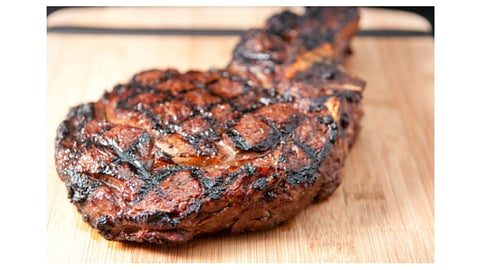
Limit Red Meat Consumption
Red meat contains plenty of valuable nutrients. It’s the primary source of Vitamin B12, and it contains high amounts of Vitamins B1, B2, niacin, panthothenic acid, folate and Vitamin B6. It’s also heavy in protein and immunity-boosting zinc. That’s the good news.
And now for the bad news – according to a review of cancer studies by the American Institute for Cancer Research, there is sufficient evidence to show a link between red meat, processed meat and colorectal cancer, and some links to pancreatic, stomach, lung and esophageal cancer.
Eat 18 ounces or less of cooked red meat every week. Make sure you eat unprocessed red meat, such as steak, lamb, pork from the butcher section of your supermarket. Buy the leanest cuts of meat (look for “loin” in on the label).
When you do eat red meat choose hormone-free, organic meats. Cheap meats high in hormones can cause endocrine cancer. Avoid all processed meats, which have been cured, salted or smoked. Hot dogs, luncheon meats, bacon and sausage are examples of processed meats.
Like to Barbecue? Watch Out for HCAs and PAHs
Many people love to barbecue during the summer. Unfortunately, turning on the grill can also increase the harmful substances in red meat.
Seared or barbecued meat develops Heterocyclic amines (HCAs), which has been shown to cause cancer by causing changes in DNA.
Charbroiled meat releases polycyclic aromatic hydrocarbons (PAHs). Like HCAs, these chemicals are formed when amino acids, creatine (muscle in meat,poultry or fish) and sugars react over high temperatures. PAHs have also been shown to cause cancer in studies.
But you don’t have to give up barbecuing this summer. Marinate your meat with spices before cooking to prevent HCAs and PAHs from forming. One study shows if you marinate meat in rosemary, you can diminish HCAs. When grilling, choose lean cuts of red meat and grill over indirect or medium heat. Turn meat often using tongs instead of a fork, and avoid pressing burgers with a spatula to release juices.

Eat More Veggies and Plant-Based Foods
Keep track of portion size, especially when you eat out in restaurants. Statistics show restaurant portion sizes are four times larger than they were in the 1950s. Don’t feel compelled to eat everything on your plate – take half of the food home with you or share it with a tablemate.
Eat low-calories foods that fill you up, reducing the urge or snack during the day. A bean burrito, fresh fruits and vegetables, unsalted nuts and seeds are much better for your weight and health than any junk food. These foods are also high in fiber and keep you regular.
Fill your plate with plant-based foods. Brown rice, fruits, vegetables, whole-grain pasta and beans should make up 75% of each meal. Some low-calorie, anti-cancer foods include:
Green veggies – All leafy green and cruciferous vegetables contain inflammation-fighting antioxidants to get rid of cancer-causing free radicals. Kale, spinach, broccoli, collard greens, cauliflower and lettuce are just a few of the green vegetables that help reduce your risk of cancer. Preparing veggies doesn’t have to be boring – add garlic, ginger or other spices, and roast, bake broil or steam.
Berries – Strawberries, blackberries and blueberries taste great and they’re low in calories, but those are just the obvious benefits of these antioxidant-packed fruits. Research conducted at the Medical College of Wisconsin showed berries contain anthocyanins and ellagitannins, two anti-cancer compounds, along with quercetin and oter phenols to prevent inflammation and keep cells healthy.
Nuts, Seeds and Healthy Fats – Eat foods with Omega 3 fatty acids and unsaturated fats, which reduce cancer risk. Avocados, olive oil and nuts are good sources of unsaturated fats. Salmon, tuna, cod and flaxseeds contain Omega 3 fatty acids, which fight the inflammation that causes cancer. These beneficial fats also promote heart and brain health. Add unsalted seeds and nuts to cereals, soups and salads, or sprinkle them in yogurt or oatmeal. There are lots of nuts and seeds to choose from, including pumpkin seeds, walnuts, Brazil nuts, sesame seeds, pecans, pistachio nuts and cashews.

Eat Low-Calorie Dense Foods, Including Fruits and Whole Grains
When cooking at home, add turmeric, cinnamon, ginger and other inflammation-fighting spices to food instead of salt. Plan meals around Omega-3 rich salmon or trout and avoid fatty meats and fried foods.
Drink more milk and eat cheese and other calcium-rich foods to minimize colon cancer risk. Several studies show that calcium helps lower your risk of colorectal cancer, though other studies indicated calcium had little or no effect. If you’re vegan or lactose-intolerant, try eating spinach, white beans or tofu to get the RDV of calcium.
Eat whole grains and other low-glycemic foods to further reduce your chance of colorectal cancer, cardiovascular disease and diabetes 2. According to a study conducted by Harvard Medical Center, whole grains offer a whole range of health benefits including a lower mortality rate.
To reduce your risk of cancer, make sure your meals consist of mostly low-calorie dense foods without added sugar or salt. These foods contain fiber and water to keep you feeling full longer.

Exercise at Least 30 Minutes Daily
It’s becoming harder for most people to engage in physical activity naturally throughout the day. We work on computers, tablets and constantly check our cell phones. Although more people bike or walk to work or events, most of us still drive to get where we need to go.
Physical activity can be something as simple as taking a brisk walk in the morning or doing yard work.
Any exercise is better than sitting still all day. If you don’t have the energy to swim or salsa, walking or yoga are good ways to get your body used to moving around again. Once you became physically active, you can graduate to more moderate or vigorous sports and exercises. Try for 60 minutes of moderate activity each day (that includes housework like laundry or mopping the floor), or 30 minutes of vigorous activity.
Get up and walk around or do some quick exercises to break up the monotony of computer work, reading or watching TV.
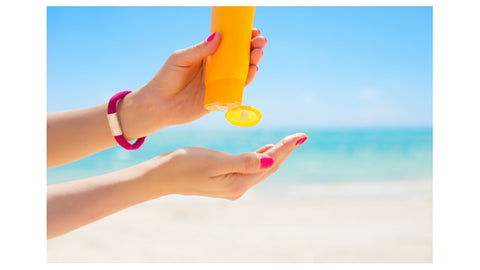
Use Sunscreen and Minimize Time in Direct Sunlight
It’s important to get some direct sunlight every day, since it’s our main source of Vitamin D. Getting outside for at least 10 minutes a day gives most people an adequate amount of Vitamin D for the day. Spending too much time in the sun, going outdoors without sunscreen, or over-tanning, can damage your skin and cause skin cancer. Observe the following rules to enjoy fun in the sun without raising your risk of skin cancer.
Exercise or run errands outdoors before 10 a.m. or after 2 p.m. UV rays are the strongest between 10 and 4. If you must be outdoors doing these hours, wear a floppy hat, sunglasses and use a water-resistant sunscreen with an SPF of 30 or higher. Avoid tanning beds, and be sure to visit your doctor if you notice growths on your skin or any changes in moles or freckles.

Filter Tap Water
Sugary drinks, (including energy drinks) and coffee piled with whipped cream and sugar add empty calories. Even too many glasses of real fruit juice pack on calories and wear down tooth enamel.
Buy a filter and get rid of carcinogens in your tap water. A study in Environmental Science and Technology Letters indicated that methadone is just one in a laundry list of dangerous substances found in tap water. Don’t stock up on bottled water just yet – it may not be as pure as water from most municipal sources.
Reduce your chance of bladder cancer by drinking plenty of water, green tea and other healthy beverages. Eight cups of liquid a day will help flush out cancer-causing chemicals when you urinate.

Get More Sleep
Lack of quality sleep may contribute to breast cancer, according to a study conducted by the International Journal of Cancer. Researchers compared a group of 1200 women who had breast cancer with a group of 1300 who didn’t, and discovered breast cancer rates were higher among women who did shift work. (Shift work may increase the incidence of prostrate cancer in men, according to other studies.) The reason for these findings? Researchers suspect it may have to do with how shift work interrupts the body’s natural circadian rhythm. Melatonin, a sleep-regulating hormone, works in the dark. Staying up all night, under electric lights, may raise cancer risk by disrupting the secretion of melatonin.

Cut Down on Alcohol and Sugary Drinks – Replace Them with Green Tea and Coffee
Soda and other sugary drinks cause weight gain, which increases the chance of cancer and other diseases, including diabetes and cardiovascular disease. Don’t add sugar to coffee or tea, and avoid diet soda with aspartame or other chemicals. Diet sodas are low on calories, but still have cancer-causing properties.
An occasional mixed drink or glass of wine is fine, but daily alcohol consumption may lead to cancer. Although results aren’t conclusive, researchers think alcohol may cause cancer by damaging DNA structure. Evidence shows regular alcohol consumption increases the likelihood of developing mouth, esophageal, pharynx and larynx cancer. It may also increase the risk of breast cancer in women and colorectal cancer in men.
If you do drink, limit consumption to one drink a day for woman and two drinks a day for men. Choose small drinks over doubles, and dilute drinks with water or alternate between non-alcoholic beverages and alcohol.
Green tea is one of the healthiest beverages you can drink. Its cancer-fighting properties are well-documented. The National Cancer Institute cites many studies relating to the free-radical fighting effect of green tea. Green tea contains polyphenols, including catechins, which are thought to inhibit the growth of cancer cells.
Green tea has many other health benefits. It helps boost metabolism and curb appetite, making it a favorite weight loss tea,and its L-theanine content improves focus, energy and brain function without the harsh buzz of coffee.
The American Institute for Cancer Research lists coffee as one of its top anti-cancer foods. Your morning cup of java offers antioxidant phytochemicals, Vitamin B2 (riboflavin) and chlorogenic acid, a phenol antioxidant. A study published in the journal Cancer Epidemiology, Biomarkers and Prevention shows study participants who drank coffee daily had a 26% lower risk of developing colorectal cancer.
Instead of grabbing a can of Coke or a sugary energy drink, choose green tea, black coffee, or another healthy alternative.
Alternative Remedies to Reduce Cancer Risk
Food grade hydrogen peroxide is one of the more controversial alternatives used to reduce cancer risk. Some authors claim that using diluted 35% or less food grade hydrogen peroxide (many users put a few drops in a glass of water) will help reduce the risk of cancer of other ailments. It is also called liquid H2O2 aka food grade peroxide. Read as much as you can about this product. Like other controversial natural health remedies, there’s no in between. Most people either swear by its benefits, or warn against its use. You can read more about it here.
Wheatgrass, one of the world’s most nutritious foods, has hundreds of vitamins and minerals, courtesy of its main component, chlorophyll. You can take wheatgrass supplements or drink wheatgrass juice; it can’t be eaten raw. Wheatgrass health benefits include better digestion, a better mood, more energy and reduced risk of cancer.
A few simple lifestyle changes can help you feel better immediately and live longer. Get off the couch, replace that can of soda with a cup of green tea and eat your fruits and veggies to reduce your risk of cancer.

